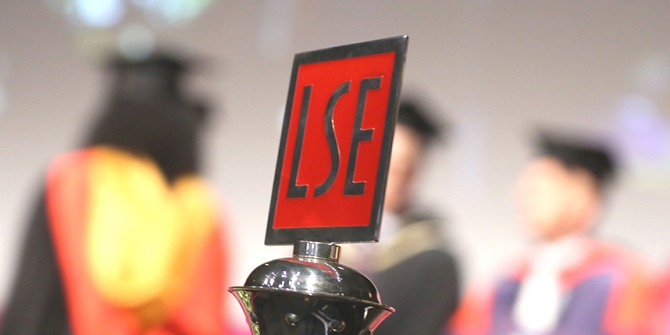In the final blog of a series this week at Researching Sociology @ LSE, as part of the LSE Social Mobility Society’s panel discussion, ‘Is there a class issue at LSE?’, which involved student and staff speakers, this blog will discuss implications for the London School of Economics and other universities, which were raised by this discussion. To view all blogs so far, and to find out more about the panellists, click here.
As well as centering around the questions; ‘what does class mean to you?’, ‘what does social mobility mean to you?’, and ‘is there a class issue at LSE?’, this panel was opened to attendees of the event, to raise questions and discuss their own thoughts.
What can the LSE do?
Tallulah Eyres:
‘LSE is not a diverse university in terms of class; a small percentage are from working class backgrounds. But when we are here, it is to signify how diverse they are as an institution, making people perceive it in a certain way. 60% of students are from overseas, and their parents have paid for them to be here, so they don’t have to experience or acknowledge the class inequality here. There are very few students like me who are here receiving bursaries and grants, and wouldn’t be here without them. I think in terms of the programmes and schemes the LSE does, in the Pathways to Law for example, you have to get particular grades, and there’s no leeway. There might be so many different things going on in that person’s life, so I think even having one grade where you can be slightly under. They’re not going to get more state school educated students if this doesn’t happen. The Widening Participation needs to be followed through, and background needs to be taken into consideration.’
Temi Mwale:
‘I agree, the international upper classes have no idea. In terms of a solution, this is a London university, and it seems there is very little effort to get people from London to come here, whether it is a programme. The system needs to not cherry pick, but to work within the communities and help people.’
Mike Savage:
‘I’m trying to find an optimistic outlook here; we have to acknowledge that this institution was founded on good, socialist values, which ultimately aimed to help groups like this. In terms of academics, the academic body is divided – not all are part of the elite themselves, but they very well may end up teaching the elite. We have the International Inequalities Institute, which is doing some fascinating and positive research that can have an impact. There is definitely a hunger for academics and staff to be engaged, and it is a lot to do with shifting ideas. I’ve also seen in my role as Head of the Sociology Department that curriculums can be adapted to make them more inclusive, just as has happened at the LSE’s Sociology Department.’
Sol Gamsu:
‘I think we can think about the long-term, beyond LSE. A strategy is needed; there is room to do practical things. We should not give up the future; a fluid system is needed, that is emancipatory. There are working class people here – involve the cleaners, campaign about working class issues and things that affect working class students.’
Ronda Daniel:
‘I think the LSE needs to practice what it preaches. It does a lot of ground-breaking research, but doesn’t provide the solutions in its own spaces. The student culture here is crushing, and not enough is done to challenge the individual snobbery and the structural barriers here. I think a crash course in culture shock would have been helpful, to get us used to being independent, and even isolated, as well as the academic world.’
Other aspects discussed included:
- Support from academic advisors to ensure close relationships
- Students need to be culturally aware
- The institution needs to tackle isolation issues, and create safe and open spaces to discuss these issues
- Presence of working class academics
- Using systems already there, such as LSE100 and LSE400
- Using freshers’ week
- Campaigns
- Integrated systems for academic advisors, or collective advisors/pastoral advisors
- Class to be acknowledged as a form of oppression here; this needs to happen before it can be a form of liberation for working class students and academics
Thank you for following this discussion series, and thank you to the panellists, attendees at the event, and the Social Mobility Society for organising and hosting this event.




Class has long taken a backseat in UK discussions of identity-driven disadvantage because it’s the dimension which would imply real economic cost to the ruling elite if it were to be addressed. Sad to say it sounds as if the situation at the LSE has worsened since I was a student there in the 1980s.